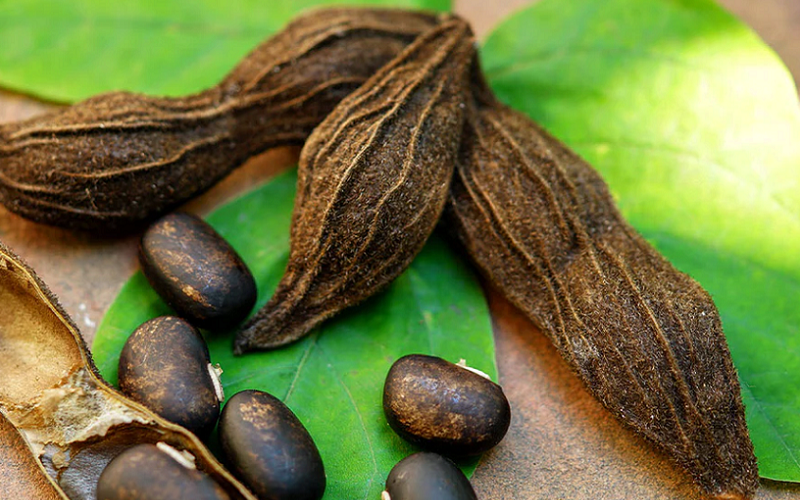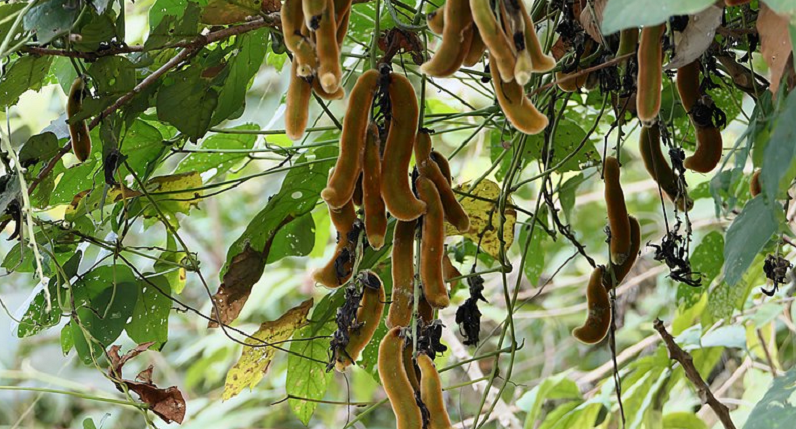
Attention-Deficit/Hyperactivity Disorder (ADHD) is a neurodevelopmental condition that affects millions of children and adults worldwide. Traditionally, ADHD is managed through a combination of medications, such as stimulants and non-stimulants, behavioral therapy, and lifestyle adjustments. However, these conventional treatments are not without their drawbacks, including potential side effects and variable effectiveness across individuals. In recent years, there has been a growing interest in natural alternatives and supplements for managing ADHD. Among these, Mucuna Pruriens has emerged as a potential natural supplement that might offer benefits for those seeking to improve attention, concentration, and overall mental well-being.
Contents
Understanding Mucuna Pruriens
Mucuna Pruriens, also known as Mucuna Extract or velvet bean, is a tropical legume native to Africa and tropical Asia. It has been used for centuries in traditional medicine systems across the world for its potential therapeutic properties.
Mucuna Pruriens is more than just a supplement; it is a plant with a rich history and a complex profile of bioactive compounds. The use of Mucuna Pruriens spans across various cultures and centuries, primarily in Ayurvedic medicine, where it has been used to treat conditions like Parkinson’s disease, erectile dysfunction, and as a general tonic for improving overall health and well-being. Its history in traditional medicine highlights its revered status among natural remedies, suggesting a breadth of potential beyond merely addressing ADHD symptoms.
The power of Mucuna Pruriens lies in its rich composition of nutrients and bioactive compounds. The most notable among these is L-Dopa, a precursor to the neurotransmitter dopamine. This component is particularly significant because of its role in brain function, including mood regulation and the ability to focus and concentrate. In addition to L-Dopa, Mucuna Pruriens contains a variety of other compounds, including antioxidants and natural steroids, which contribute to its overall health benefits [1].
Mucuna Pruriens and Neurochemistry
The brain’s chemical environment plays a pivotal role in mood regulation, attention, and the overall cognitive processes affected by ADHD. Mucuna Pruriens, with its unique composition, particularly influences this environment through the action of specific bioactive compounds.
The Role of Dopamine in ADHD
Dopamine is a neurotransmitter that is central to the regulation of attention, motivation, and pleasure. In individuals with ADHD, the dopaminergic system often functions differently, which can lead to challenges with concentration, hyperactivity, and impulsiveness. The therapeutic strategies for ADHD frequently aim to modulate this system to alleviate symptoms.
L-Dopa in Mucuna Pruriens
L-Dopa, or Levodopa, the precursor to dopamine, is abundantly found in Mucuna Pruriens. This compound is directly converted into dopamine in the brain, influencing the dopaminergic system in a way that could mitigate some of the core symptoms of ADHD.
Mechanism of Action
When L-Dopa is consumed, it crosses the blood-brain barrier and is converted into dopamine, effectively increasing the levels of this crucial neurotransmitter in the brain. This increase can help in balancing the dopaminergic system, potentially improving focus, reducing impulsivity, and enhancing mood.
Comparison with Synthetic L-Dopa
The L-Dopa found in Mucuna Pruriens offers a natural source of this compound. While synthetic L-Dopa is often used in the treatment of Parkinson’s disease, the natural form found in Mucuna may have a different absorption profile and possibly fewer side effects, making it an interesting alternative for individuals exploring natural supplements for ADHD [2].
Other Neuroactive Compounds in Mucuna Pruriens
Besides L-Dopa, Mucuna Pruriens contains several other compounds that can influence brain health and function. These include naturally occurring antioxidants that protect neural cells from oxidative stress and secondary metabolites that may support cognitive functions and overall brain health.

Research and Evidence on Mucuna Pruriens for ADHD
While the theoretical underpinnings and the neurochemical properties of Mucuna Pruriens suggest it could be a beneficial supplement for ADHD, it’s important to examine the empirical evidence to understand its actual effects.
Overview of Scientific Studies and Clinical Trials Involving Mucuna Pruriens for ADHD
Research on Mucuna Pruriens has historically focused on its potential for treating Parkinson’s disease, due to its high L-Dopa content. However, this research indirectly supports the supplement’s potential for ADHD, as both conditions involve dopaminergic pathways.
Studies on L-Dopa’s Effectiveness for ADHD
Some studies have explored synthetic L-Dopa’s effectiveness in managing ADHD symptoms, providing a basis for considering Mucuna Pruriens as an alternative source of L-Dopa. These studies indicate that increasing dopamine levels can improve symptoms of inattention and impulsivity in some individuals with ADHD.
Research Specific to Mucuna Pruriens
Although direct research on Mucuna Pruriens for ADHD is limited, several smaller studies and anecdotal reports suggest it may improve cognitive function and behavioral symptoms associated with ADHD. It’s important to note, however, that these studies often have small sample sizes and may lack the rigor of larger clinical trials.
Limitations and Gaps in the Current Research of Mucuna Pruriens for ADHD
The current body of research on Mucuna Pruriens for ADHD presents several limitations that readers should be aware of. These include the small scale of many studies, the variability in supplement formulation and dosage, and the lack of long-term safety data. These gaps highlight the need for more comprehensive, controlled clinical trials to fully understand the benefits and risks of Mucuna Pruriens for ADHD.
Mucuna Pruriens for ADHD Testimonials and Anecdotal Evidence
In addition to scientific studies, there is a wealth of anecdotal evidence from individuals who have used Mucuna Pruriens for ADHD and reported positive effects on their symptoms. While such testimonials are not a substitute for scientific evidence, they can provide valuable insights into potential benefits and encourage further research [3].

Advantages of Using Mucuna Pruriens for ADHD
Exploring Mucuna Pruriens as a supplement for ADHD brings to light several potential advantages. These benefits not only relate to its neurochemical properties but also to its status as a natural alternative to conventional treatments.
Natural Source of L-Dopa
One of the most compelling advantages of Mucuna Pruriens is its natural provision of L-Dopa, a direct precursor to dopamine. This stands in contrast to synthetic medications that may produce similar effects but come with a higher risk of side effects.
Enhanced Neurochemical Balance
By increasing dopamine levels naturally, Mucuna Pruriens can help improve focus, motivation, and emotional regulation in individuals with ADHD. This approach to enhancing neurochemical balance may be particularly appealing for those looking for alternatives to synthetic drugs.
Potential for Fewer Side Effects
Given its natural origin, Mucuna Pruriens may be associated with fewer or less severe side effects compared to conventional ADHD medications. However, it’s important to note that “natural” does not always mean “safe,” and individual reactions can vary.
Additional Health Benefits Beyond ADHD Symptom Management
Beyond its potential impact on ADHD symptoms, Mucuna Pruriens offers additional health benefits that may contribute to overall well-being.
Antioxidant Properties
The antioxidants present in Mucuna Pruriens can combat oxidative stress, protecting cells from damage. This is significant not only for brain health but for the body as a whole.
Neuroprotective Effects
Some studies suggest that Mucuna Pruriens has neuroprotective properties, which may help safeguard the brain against degenerative diseases and cognitive decline. This aspect is particularly appealing for long-term health maintenance.
Considerations for Integration into Treatment Plans
While the advantages of Mucuna Pruriens for ADHD are promising, integrating this supplement into a treatment plan should be done thoughtfully and in consultation with healthcare professionals. Understanding the appropriate dosages, potential interactions with other medications, and monitoring for side effects are essential steps in safely leveraging Mucuna Pruriens’ benefits for ADHD.
References
[1] Imaging study shows dopamine dysfunction is not the main cause of Attention Deficit Hyperactivity Disorder (ADHD)
[2] Dopamine deficiency: What you need to know
[3] Mucuna pruriens Administration Minimizes Neuroinflammation and Shows Anxiolytic, Antidepressant and Slimming Effects
